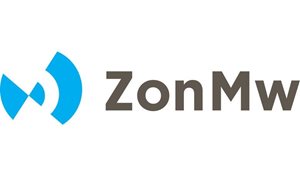16 January 2020
The PRegnancy and Infant DEvelopment (PRIDE) Study is an ongoing prospective cohort study among pregnant women. Its primary aim is to identify exposures during pregnancy and in early life that may affect short‐term or long‐term health of mother and/or child. Dutch women are invited for participation as early in pregnancy as possible (mean gestational week: 10). Initially, only prenatal care providers recruited participants, but alternative recruitment methods were added, including collaboration with ‘Moeders voor Moeders’ and social media advertisements. Characteristics of participants differ between recruitment methods. Although recruitment rates were lower than expected based on the pilot study, we expect to include the 10,000th pregnancy by the end of January, making the PRIDE Study the largest birth cohort study in the Netherlands.
Priority exposures include medication use during pregnancy, maternal depressive symptoms, physical and emotional stress, occupational exposures, and lifestyle factors, whereas pregnancy complications, birth outcomes, childhood asthma, and ADHD are among the priority outcomes. We were among the firsts to implement Web-based questionnaires as a method of data collection in medical research. Our studies showed that the validity of data collected through Web-based questionnaires was similar or even higher compared to traditional methods of data collection in similar settings. In addition to the prenatal (baseline, gestational weeks 17 and 34) and biannual post-partum questionnaires, we collect data with paternal questionnaires, food frequency questionnaires, and blood and saliva samples among subgroups. Furthermore, various focus cohorts are implemented for dedicated data collection.
Lessons learned include the acceptance of technical hassles, the need for additional efforts to reduce loss to follow-up, and the strong preference of the study population for administration of questionnaires on smartphones, which needs additional programming. The PRIDE Study is open for collaboration.
Publication
The PRIDE Study: Evaluation of online methods of data collection
van Gelder MMHJ, Merkus PJFM, van Drongelen J, Swarts JW, van de Belt TH, Roeleveld N.

The PRegnancy and Infant DEvelopment (PRIDE) Study is an ongoing prospective cohort study among pregnant women. Its primary aim is to identify exposures during pregnancy and in early life that may affect short‐term or long‐term health of mother and/or child. Dutch women are invited for participation as early in pregnancy as possible (mean gestational week: 10). Initially, only prenatal care providers recruited participants, but alternative recruitment methods were added, including collaboration with ‘Moeders voor Moeders’ and social media advertisements. Characteristics of participants differ between recruitment methods. Although recruitment rates were lower than expected based on the pilot study, we expect to include the 10,000th pregnancy by the end of January, making the PRIDE Study the largest birth cohort study in the Netherlands.
Priority exposures include medication use during pregnancy, maternal depressive symptoms, physical and emotional stress, occupational exposures, and lifestyle factors, whereas pregnancy complications, birth outcomes, childhood asthma, and ADHD are among the priority outcomes. We were among the firsts to implement Web-based questionnaires as a method of data collection in medical research. Our studies showed that the validity of data collected through Web-based questionnaires was similar or even higher compared to traditional methods of data collection in similar settings. In addition to the prenatal (baseline, gestational weeks 17 and 34) and biannual post-partum questionnaires, we collect data with paternal questionnaires, food frequency questionnaires, and blood and saliva samples among subgroups. Furthermore, various focus cohorts are implemented for dedicated data collection.
Lessons learned include the acceptance of technical hassles, the need for additional efforts to reduce loss to follow-up, and the strong preference of the study population for administration of questionnaires on smartphones, which needs additional programming. The PRIDE Study is open for collaboration.
Publication
The PRIDE Study: Evaluation of online methods of data collection
van Gelder MMHJ, Merkus PJFM, van Drongelen J, Swarts JW, van de Belt TH, Roeleveld N.
Related news items

Millions of euros for study of laser treatment for glioblastoma
2 April 2021 A research group from Radboudumc and UMC Utrecht is to investigate laser treatment of a rare brain tumor, glioblastoma. 3.9 million euros has been made available for the research by Zorginstituut Nederland and ZonMw, under the auspices of the Subsidy Scheme for Promising Care. go to page
Plugging the gap ZonMw/Health Holland grant
3 March 2020 RIMLS en RIHS researchers Willeke Daamen, Frank Vandenbussche, Joris van Drongelen, Toin van Kuppevelt and Janneke Grutters have been granted 1.3 million euro for the development and evaluation of a new technology to prevent premature rupture of fetal membranes (iPPROM). go to page
Awardees RIHS Junior Researcher round 2020
23 October 2019 Recently, RIHS held an internal call for Radboudumc junior researcher (PhD) positions. This year 6 positions have been awarded. go to page
Merel Ritskes-Hoitinga has been appointed honorary Skou professor at Aarhus University
17 October 2019 Merel Ritskes-Hoitinga has been appointed honorary Skou Professor at the Dept. of Clinical Medicine, at Aarhus University. The aim is to introduce new perspectives to teaching, strengthen relations with leading research units abroad and establish joint research projects and funding applications. go to page
Association of gestational weight gain with adverse maternal and infant outcomes
13 May 2019 An individual participant meta-analysis published in JAMA showed that pregnancy BMI is related stronger to maternal and infant complications than to gestational weight gain. The PRIDE Study, with coauthors Marleen van Gelder and Nel Roeleveld, was one of the participating cohorts. go to page
